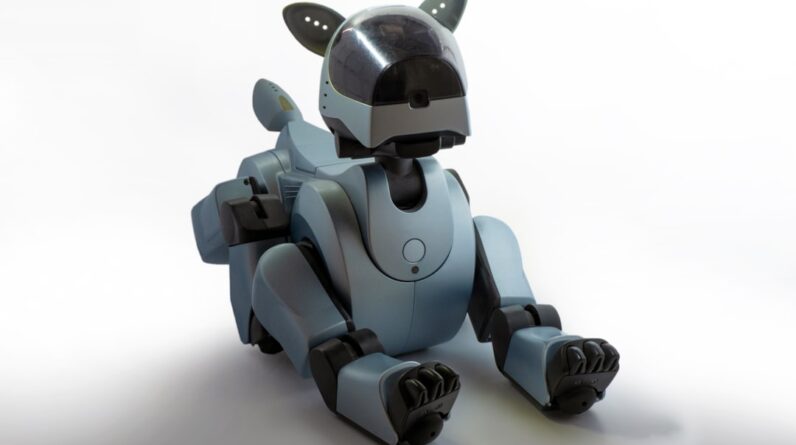As you step into the world of manufacturing, you may notice a significant transformation taking place, driven by the integration of artificial intelligence (AI). This technological revolution is reshaping how factories operate, enhancing efficiency, and improving product quality. AI in manufacturing is not just a buzzword; it represents a paradigm shift that allows companies to leverage data and advanced algorithms to make informed decisions.
By harnessing the power of AI, manufacturers can optimize their processes, reduce costs, and ultimately deliver better products to consumers. The adoption of AI technologies in manufacturing is becoming increasingly prevalent. From small-scale operations to large industrial giants, businesses are recognizing the potential benefits of AI-driven solutions.
You might find that AI applications range from simple automation tasks to complex systems that analyze vast amounts of data in real time. As you delve deeper into this topic, you will discover how AI is revolutionizing various aspects of manufacturing, paving the way for a more efficient and responsive industry.
Key Takeaways
- AI is revolutionizing manufacturing by improving efficiency, productivity, and decision-making processes.
- Quality control and inspection are being enhanced through AI technologies such as machine learning and computer vision.
- Predictive maintenance is becoming more accurate and cost-effective with the help of AI, reducing downtime and maintenance costs.
- AI is optimizing supply chain management by predicting demand, improving inventory management, and enhancing logistics.
- Production planning and scheduling are being streamlined and optimized through AI algorithms, leading to better resource utilization and reduced lead times.
- Robotics and automation are being integrated with AI to improve manufacturing processes, increase precision, and reduce human error.
- AI is transforming inventory management by providing real-time insights, optimizing stock levels, and reducing carrying costs.
- In conclusion, AI is set to continue transforming the manufacturing industry, with future trends including increased use of AI-powered robotics, further integration of IoT devices, and the development of more advanced AI algorithms for manufacturing applications.
Quality Control and Inspection
When it comes to quality control and inspection, AI is proving to be a game-changer. Traditionally, quality assurance relied heavily on manual inspections, which could be time-consuming and prone to human error. However, with the advent of AI technologies, you can now witness a shift towards automated inspection processes that enhance accuracy and speed.
Machine learning algorithms can analyze images and data from production lines, identifying defects or inconsistencies with remarkable precision. This not only reduces the likelihood of faulty products reaching consumers but also streamlines the overall quality control process. Moreover, AI-driven quality control systems can learn from past data, continuously improving their ability to detect anomalies.
As you explore this area further, you will find that these systems can adapt to new production methods or materials, ensuring that quality standards are consistently met. By implementing AI in quality control, manufacturers can achieve higher levels of product reliability and customer satisfaction, ultimately leading to increased brand loyalty and market competitiveness.
Predictive Maintenance
Predictive maintenance is another area where AI is making significant strides in manufacturing. You may have heard about the challenges associated with equipment downtime and maintenance costs. Traditional maintenance strategies often rely on scheduled inspections or reactive measures after a failure occurs.
However, with AI-powered predictive maintenance, you can take a proactive approach to equipment management. By analyzing data from sensors and historical performance records, AI algorithms can predict when a machine is likely to fail or require maintenance. This predictive capability allows you to schedule maintenance activities at optimal times, minimizing disruptions to production schedules.
Imagine being able to address potential issues before they escalate into costly breakdowns. This not only saves money but also enhances overall operational efficiency. As you consider the implications of predictive maintenance, you will realize that it empowers manufacturers to extend the lifespan of their equipment while ensuring consistent production output.
Supply Chain Management
In the realm of supply chain management, AI is proving to be an invaluable asset. You may be aware that supply chains are often complex networks involving multiple stakeholders, each with their own set of challenges. AI can help streamline these processes by providing real-time insights into inventory levels, demand forecasts, and supplier performance.
By analyzing vast amounts of data from various sources, AI algorithms can identify patterns and trends that inform decision-making. For instance, as you navigate through supply chain complexities, you might find that AI can optimize inventory levels by predicting demand fluctuations. This means you can avoid overstocking or stockouts, leading to more efficient operations and reduced costs.
Additionally, AI can enhance supplier selection by evaluating performance metrics and risk factors, ensuring that you partner with reliable suppliers who meet your quality standards. The integration of AI into supply chain management not only improves efficiency but also fosters collaboration among stakeholders.
Production Planning and Scheduling
Production planning and scheduling are critical components of manufacturing operations, and AI is revolutionizing how these processes are managed. You may have experienced the challenges of balancing production capacity with demand fluctuations. Traditional planning methods often struggle to adapt quickly to changing circumstances.
However, with AI-driven solutions, you can achieve a level of agility that was previously unattainable. AI algorithms can analyze historical production data alongside real-time market trends to create optimized production schedules. This means you can respond swiftly to changes in demand while maximizing resource utilization.
Imagine having the ability to adjust production plans on-the-fly based on real-time insights—this is the power of AI in action. As you explore this topic further, you’ll discover how AI not only enhances efficiency but also enables manufacturers to meet customer expectations more effectively.
Robotics and Automation
The Evolution of Robotics
You may have seen robots performing repetitive tasks on assembly lines for years; however, with AI capabilities, these machines are becoming smarter and more adaptable. AI-powered robots can learn from their environments and make decisions based on real-time data inputs.
Enhanced Flexibility in Manufacturing
This advancement allows for greater flexibility in manufacturing operations. For instance, as you observe an AI-enabled robotic system, you might notice its ability to adjust its actions based on variations in product specifications or production conditions. This adaptability not only enhances productivity but also reduces the need for extensive reprogramming or manual intervention.
Transforming Traditional Manufacturing
As you delve deeper into the world of robotics and automation, you’ll find that the synergy between AI and robotics is driving innovation and transforming traditional manufacturing paradigms.
Inventory Management
Effective inventory management is crucial for maintaining operational efficiency in manufacturing. You may have encountered challenges related to excess inventory or stock shortages that disrupt production flow. Fortunately, AI is here to help streamline inventory management processes.
By leveraging machine learning algorithms, manufacturers can gain insights into inventory levels, turnover rates, and demand patterns. Imagine having access to predictive analytics that forecast future inventory needs based on historical data and market trends. With this information at your fingertips, you can make informed decisions about when to reorder materials or adjust production schedules accordingly.
Additionally, AI can help identify slow-moving items or excess stock that may tie up valuable resources. As you explore the impact of AI on inventory management further, you’ll realize that it empowers manufacturers to optimize their supply chains while minimizing costs.
Conclusion and Future Trends
As you reflect on the transformative impact of AI in manufacturing, it’s clear that this technology is reshaping the industry landscape in profound ways. From quality control and predictive maintenance to supply chain management and robotics, AI is driving efficiency and innovation across various facets of manufacturing operations. The future holds even more promise as advancements in AI continue to evolve.
Looking ahead, you might anticipate further integration of AI with emerging technologies such as the Internet of Things (IoT) and advanced analytics. This convergence will enable manufacturers to create smart factories where machines communicate seamlessly with one another and with human operators. As you consider these future trends, it’s essential to recognize that embracing AI is not just about adopting new tools; it’s about fostering a culture of innovation that prioritizes continuous improvement.
In conclusion, as you navigate the ever-changing landscape of manufacturing, understanding the role of AI will be crucial for staying competitive in the market. By leveraging AI-driven solutions across various operational areas, manufacturers can enhance productivity, reduce costs, and ultimately deliver higher-quality products to consumers. The journey into the future of manufacturing is exciting—one where technology and human ingenuity work hand in hand to create a more efficient and sustainable industry.
If you are interested in learning more about the impact of artificial intelligence on various industries, you may want to check out the article AI and Autonomous Vehicles: Challenges and Opportunities for the Future. This article delves into how AI is revolutionizing the automotive industry and the challenges and opportunities that come with the integration of AI in autonomous vehicles. It provides valuable insights into the future of transportation and the role that AI will play in shaping it.
FAQs
What is AI?
AI, or artificial intelligence, refers to the simulation of human intelligence processes by machines, especially computer systems. These processes include learning, reasoning, and self-correction.
How is AI used in the manufacturing industry?
AI is used in the manufacturing industry for various applications such as predictive maintenance, quality control, supply chain optimization, and autonomous robots. It helps in improving efficiency, reducing downtime, and enhancing overall productivity.
What are the benefits of using AI in manufacturing?
The benefits of using AI in manufacturing include improved operational efficiency, reduced downtime, better product quality, predictive maintenance, and optimized supply chain management. AI also enables manufacturers to make data-driven decisions and adapt to changing market demands.
What are some examples of AI applications in manufacturing?
Some examples of AI applications in manufacturing include machine learning algorithms for predictive maintenance, computer vision systems for quality control, natural language processing for supply chain management, and autonomous robots for assembly and material handling.
Is AI replacing human workers in the manufacturing industry?
While AI is automating certain tasks in the manufacturing industry, it is not necessarily replacing human workers. Instead, it is augmenting human capabilities and enabling workers to focus on more complex and value-added tasks.






